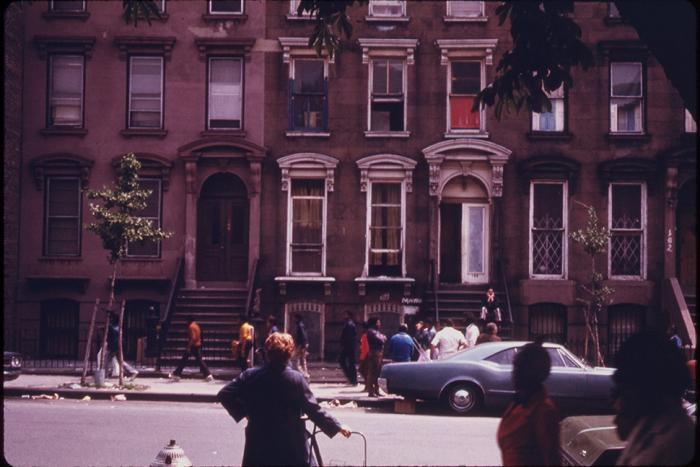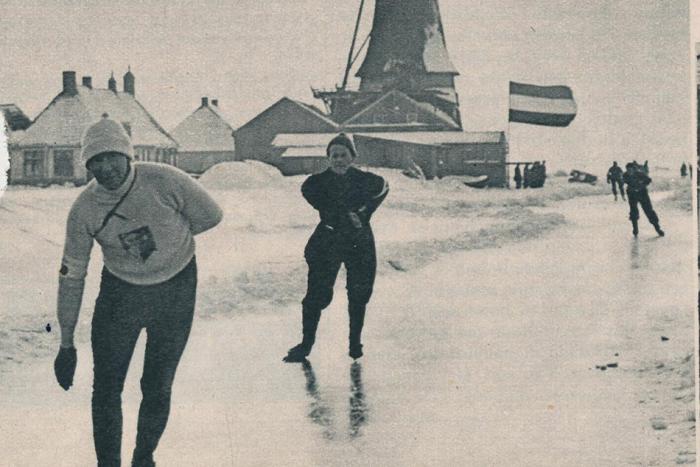What was important to us in 2015? Hazlitt’s writers reflect on the quiet reverberations of the year’s big issues, and the loud ring of its smaller ones.
There’s this joke that’s been around for a while, though the original is generally credited to Gary Mule Deer, which goes, “Suicide Hotline, Please hold!” The punch line of course is that a person in the throes of despair is once again deferred in their last attempts at reaching out by the one establishment put in place to help them. That’s why, in mid-August, after I hadn’t left my bed in days, I laughed when I was put on hold by Toronto’s Distress Centre.
“This is funny,” I said to my empty room feeling completely dead inside. I listened to the recording on the phone telling me that my call was very important to them and that I would be helped at the next available moment. While holding, I idly scrolled through my Facebook profile, deciding I needed to update my display picture. I settled on a recent hot selfie I had taken wearing a bikini, black sheer vintage cover up, and knock off Ray-Bans, hopefully looking rad enough in it that everybody would covet my perfect life so long as I didn’t, you know, off myself that night. “This is a funny situation.”
*
I post a lot on social media. According to my stats, I’ve tweeted 12.3 thousand times since 2009 and uploaded 1,579 images to Instagram since 2012. (I don’t have any way to track my Facebook posts, but there are a lot.) I am the oversharing millenial addicted to social media that old people love to clutch their pearls over. I have a job that requires me to spend a lot of time in front of a computer, and social media makes procrastination so easy. I usually only post jokes and selfies, anyway.
Calling yourself depressed when you’re a writer seems so redundant.
Two months before I shared that bikini selfie while on hold, I posted a picture of myself holding up an open copy of David Foster Wallace’s Infinite Jest with the caption, “SCREW YOU IM GONNA DO IT FOR REAL THIS TIME.” At 1,079 pages, Infinite Jest is one of those books that everybody in a certain demographic owns but far fewer have finished, and—look, I don’t need to explain it to you. If you’re reading this website, you know about Infinite Jest and the people it attracts.
There was nothing particularly special about me announcing that I was going to give reading the book a go. I had tried before, usually once every summer, before giving up in a series of self-deprecating tongue-in-cheek posts about how reading is dumb anyway and I’d rather be watching The Simpsons. The posts would sit on my timeline in between links to pieces in the New Yorker and rambling anecdotes about funny interactions I had that day, all designed to make me look smart but, like, in a totally fun self-aware way.
And yet when I actually started reading Infinite Jest that June evening, sitting at my kitchen table with my phone and computer in the other room, I attacked it with a vigor I hadn’t before. I had spent the previous weeks stuck in an unsteady aimlessness that had been growing in intensity. What started as “a bit of a funk” was growing into something else, until I wasn’t doing much with my days except for the bare minimum of my freelance job required to pay my rent.
Calling yourself depressed when you’re a writer seems so redundant. On a bad day it feels like we’re all special introspective snowflakes struggling to be understood. Announcing it on social media makes it even more desperate, like you’re just doing it for attention. And when I say “we” and “you” in this paragraph, fucking duh, I’m talking about myself. I was sad! I felt sad! I didn’t know how to express that I was sad! And I did want, very much so, to have my friends pay attention to me. But I wasn’t looking to be pitied or to make anybody concerned about my well-being. Instead, I would be admired for my intellectual prowess, and for my ability to turn anything—including reading Infinite Jest—into a funny game.
I started Infinite Jest on a day when I had no immediate deadlines. I made a deal with myself. I wouldn’t focus on anything else until I read the whole thing. I wouldn’t text my friends about my melodramatic anxieties, wouldn’t worry about the future, wouldn’t be depressed, so long as I had this insurmountable mission in front of me. Surely this would be a safe distraction to keep me going for a while, right?
I finished that sucker in three days.
*
I wasn’t alone when I read it. I frequently made posts to social media, usually in the form of jokes I wrote in my notebook, photographed for Instagram, and crossposted to Facebook. The posts were all facetious; I wrote out lists imagining what would happen once I finished the book (“I’ll be able to start every conversation with, ‘Well, as a person who’s read Infinite Jest…’”) or jokes about the content of the book itself (“Theories of what was actually on the entertainment in Infinite Jest: James O. Incandenza acting out the light saber scene from Star Wars.”) Every post came with accolades and likes from my friends and peers and strangers who I couldn’t remember becoming Facebook friends with in the first place. Some people who had read the book themselves messaged me to gush about their favourite moments, others commented to say that they’ve been meaning to read the book and that I inspired them to start. We were in it together. My depression was a footnote to my mission during those three days. When I finished the book, I posted a picture of the back cover with the caption “Bam. Done.” The picture got 26 likes on Facebook and 41 likes on Instagram. And just like that, it was over.
It was an anticlimax that can be compared to losing my virginity. There was this expectation that I would now see the world differently, that I would be fixed—which of course is a ridiculous way of looking at it because look what good writing it did for the author. I was the same depressed, anxious woman I had been three days earlier, only now I had read Infinite Jest.
The rest of the summer passed in a series of vignettes, a montage of false starts in which my depression worsened. I impulsively went to California for a guy I barely knew, then had the gall to act disappointed when it didn’t work out. I slept, a lot. I left one of my regular jobs, writing for a popular teen magazine. I tried deactivating all my social media accounts, but that didn’t last long. I spent some time at my parents’. I slept some more. I blew through my savings. By mid-August I was barely leaving my bed, going days without showering, spending my days existing between layers of grease and sadness.
*
Being on hold for the crisis centre is a lot like being on hold with the cable company, or any other business: after a while you become so idle and impatient that you start to forget why you were calling in the first place, though you’re sure it was for something important.
Eventually, I grabbed my ever-present pen and notebook off my bedside table. I filled up a page with a list called “Thoughts I Had While On Hold With The Suicide Hotline.” (“They sound understaffed. Maybe if I don’t kill myself tonight, I should volunteer with them.”) Another page was “Reasons Not To Kill Myself.” (“My roommate is out of town this week, and it’s kind of a crappy thing for her to come home to.”) For a second I considered if the jokes were too dark to put on Facebook. Great. A direct attempt to seek help was turning into another performative joke.
After a while, when it became clear that I wasn’t going to hurt myself that night (my frustrations had turned outward, toward the voice on the hold line), I hung up the phone. I switched my computer back on and checked to see if my new profile picture had gotten any likes. There was a minute of self-awareness, a resurgence of self-loathing, a kind of, “twenty minutes ago you were contemplating dying and now you’re acting like a total narcissist, what is wrong with you?” but I shrugged it off. Because I did. I wanted attention. In that moment, I wanted nothing more in the entire fucking world than attention. Like a 1,079 postmodern epic, I didn’t care about being understood; I just wanted to be seen, acknowledged, respected, feared, loved, admired, coveted, a perpetual presence in the lives of everyone I had ever interacted with, whether it was on a bookshelf or a timeline. My sadness wasn’t something that was going to be solved that night. Right then, it was enough for me to just be there.






